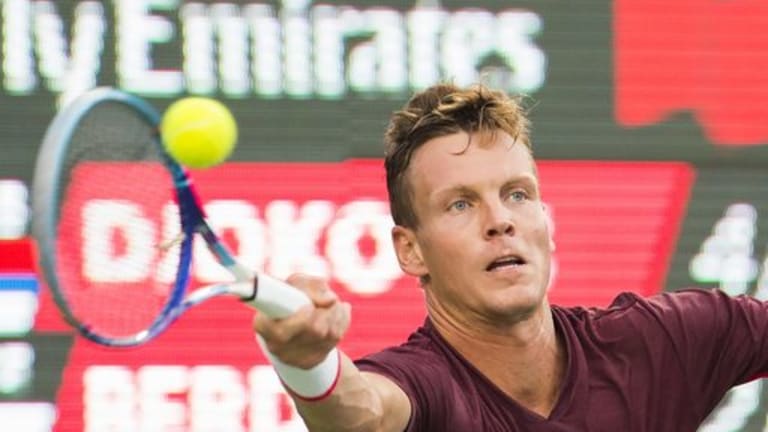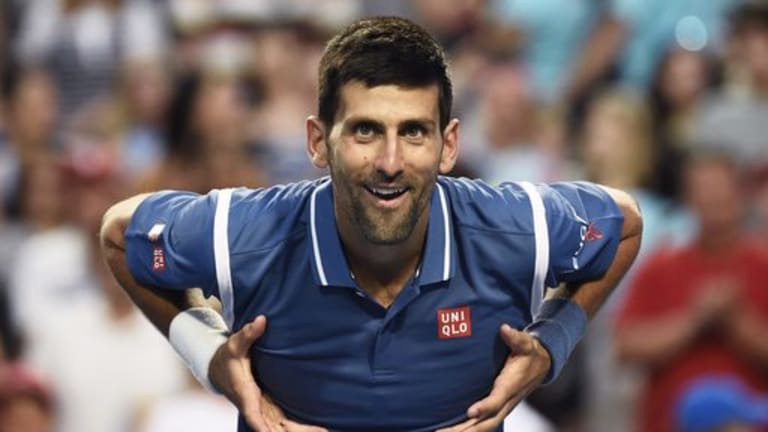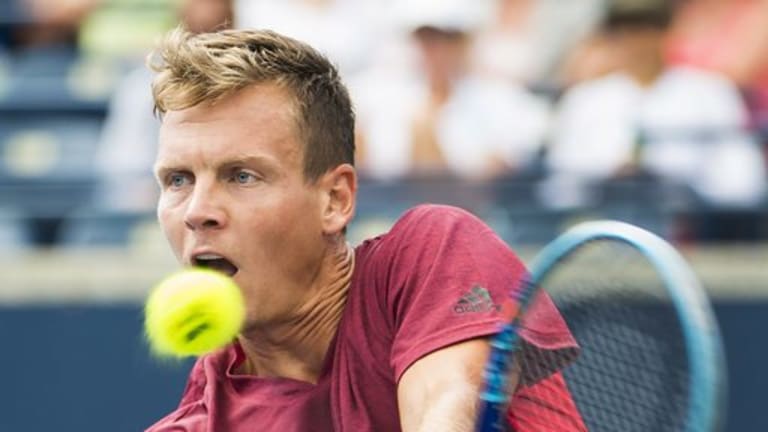Tomas Berdych led Novak Djokovic 6-3 in the first-set tiebreaker of their quarterfinal on Friday evening in Toronto. Berdych had two serves coming, and a morose Djokovic, who had blown a 5-3 lead earlier in the set and made twice as many errors as winners, looked ready to throw in the towel and start over in the second. Over the previous 15 minutes, the world No. 1 had lost his timing completely; some of his serves were barely breaking the 70-m.p.h. mark.
I think you know what happened next.
Berdych began by double faulting. A bad sign, certainly, but when he followed it with a nice sliding first ball out wide into the deuce court, it looked like everything would be OK. Except that Djokovic, who was in stand-and-deliver mode, delivered one of his patented full-stretch service returns to within an inch of the baseline. Berdych, handcuffed, flipped a forehand into the net.
Worst of all, and most predictable of all, was what happened next: Up 6-5, with one more set point, Berdych watched as Djokovic tossed a weak second serve into the middle of the box. But rather than move up to pummel it, Berdych froze, reached out for the ball and sent his backhand return sailing long. It was 6-6 in the first-set tiebreaker, but the match was essentially over.


